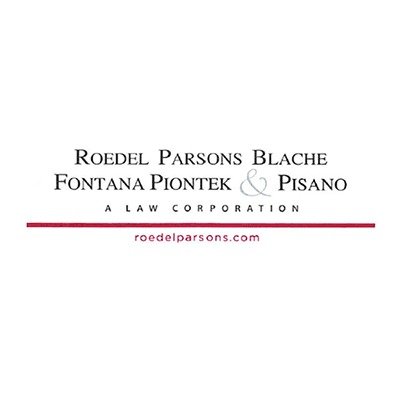Best Franchising Lawyers in Baton Rouge
Share your needs with us, get contacted by law firms.
Free. Takes 2 min.
List of the best lawyers in Baton Rouge, United States
About Franchising Law in Baton Rouge, United States
Franchising is a business model where one party (the franchisor) grants another party (the franchisee) the right to operate a business using the franchisor's established brand, products, and systems. Baton Rouge, located in the state of Louisiana, follows the general principles of franchising law prevalent in the United States.
Why You May Need a Lawyer
You may need a lawyer specializing in franchising law in Baton Rouge for various reasons, including:
- Negotiating franchise agreements
- Understanding and complying with relevant local, state, and federal laws
- Resolving contractual disputes between franchisors and franchisees
- Seeking guidance on legal rights and obligations as a franchisee or franchisor
- Protecting intellectual property rights
Local Laws Overview
In Baton Rouge, there are various local laws and regulations that specifically impact franchising. Key aspects of these laws include:
- Disclosure Requirements: Franchisors must comply with the Federal Trade Commission's Franchise Rule, which requires them to provide a Franchise Disclosure Document (FDD) to potential franchisees.
- Registration Requirements: Louisiana does not have specific franchise registration requirements, but certain business opportunities may be subject to registration under the state's Business Opportunity Law.
- Contractual Obligations: Franchise agreements must adhere to Louisiana's general contract laws, including considerations of fair dealing, good faith, and reasonableness.
Frequently Asked Questions
1. What are some common franchise fees?
Common franchise fees may include an initial franchise fee, ongoing royalty fees, marketing fees, and other charges as outlined in the franchise agreement.
2. Can I negotiate the terms of a franchise agreement?
While franchisors may have standard franchise agreements, negotiation may still be possible. Consulting with a lawyer can help you understand the terms and negotiate any modifications that are mutually beneficial.
3. How can I protect my intellectual property as a franchisor?
To protect your intellectual property, you can apply for trademarks and copyrights for your brand, logo, and other relevant materials. Additionally, including specific provisions in the franchise agreement can help safeguard your intellectual property rights.
4. What happens if a franchise agreement is terminated?
When a franchise agreement is terminated, there may be provisions related to post-termination obligations, such as non-competition clauses, confidentiality requirements, and the transfer of assets. Consulting a lawyer is crucial to understand and address these matters.
5. What remedies are available for franchisees in case of a dispute?
Franchisees can seek remedies through negotiation, mediation, or litigation. The specific remedies available will depend on the nature of the dispute and the terms outlined in the franchise agreement.
Additional Resources
For further information and assistance, consider exploring the following resources:
- Baton Rouge Chamber of Commerce - Franchising Division: Contact the local chamber of commerce for guidance on franchising opportunities and local regulations.
- U.S. Small Business Administration (SBA) - Franchising: The SBA offers resources and support for entrepreneurs interested in franchising, including legal guidance.
- State of Louisiana Office of the Attorney General: The Attorney General's office provides information on accessing legal services and consumer protection.
Next Steps
If you require legal assistance in the field of franchising in Baton Rouge, consider taking the following steps:
- Gather all relevant documentation, including franchise agreements, correspondence, and receipts.
- Research and identify lawyers specializing in franchising law in Baton Rouge.
- Consult with multiple lawyers to discuss your specific situation and evaluate their expertise.
- Select a lawyer who understands your needs and can provide appropriate legal advice.
- Proceed with engaging the chosen lawyer and work together to navigate the franchising legal process.
Lawzana helps you find the best lawyers and law firms in Baton Rouge through a curated and pre-screened list of qualified legal professionals. Our platform offers rankings and detailed profiles of attorneys and law firms, allowing you to compare based on practice areas, including Franchising, experience, and client feedback.
Each profile includes a description of the firm's areas of practice, client reviews, team members and partners, year of establishment, spoken languages, office locations, contact information, social media presence, and any published articles or resources. Most firms on our platform speak English and are experienced in both local and international legal matters.
Get a quote from top-rated law firms in Baton Rouge, United States — quickly, securely, and without unnecessary hassle.
Disclaimer:
The information provided on this page is for general informational purposes only and does not constitute legal advice. While we strive to ensure the accuracy and relevance of the content, legal information may change over time, and interpretations of the law can vary. You should always consult with a qualified legal professional for advice specific to your situation.
We disclaim all liability for actions taken or not taken based on the content of this page. If you believe any information is incorrect or outdated, please contact us, and we will review and update it where appropriate.








